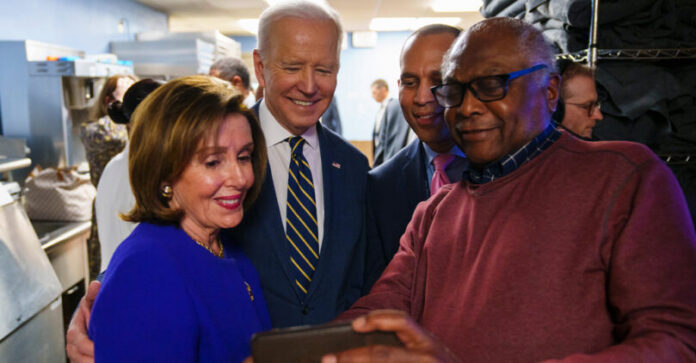
By Stacy M. Brown, NNPA Newswire Senior National Correspondent
Representatives Rashida Tlaib (D-Michigan) and Dean Phillips (D-Minnesota) have reportedly emerged as formidable critics of President Joe Biden’s bid for reelection, publicly displaying a split within the party as Democrats desperately attempt to hold onto the White House in 2024. Despite their ideological differences, the two lawmakers have independently voiced concerns about Biden’s policies, creating a unique challenge for the incumbent.
Tlaib, known for her progressive stance on issues, has sharply criticized Biden for his unwavering support of Israel, going so far as to accuse him of enabling the “genocide” of Palestinians in a video statement. As a Palestinian American, Tlaib’s stance could potentially sway Muslim and Arab American voters, a crucial demographic in swing states like Michigan, which is Tlaib’s home state.
Phillips, hailing from the centrist wing of the Democratic Party, has taken a further step by launching a primary challenge against Biden in New Hampshire. Advocating for generational change, Phillips has expressed doubt about Biden’s ability to defeat former President Donald Trump. He has also pledged to address economic concerns, vowing to “make America affordable again.”
The convergence of Tlaib and Phillips’ criticism of Biden is not entirely coincidental. Both represent various facets of the Democratic Party’s post-Trump landscape: Tlaib stands for the radical progressive movement through her association with the Squad. Phillips is a member of the Problem Solvers Caucus, which promotes nonpartisan solutions. Politico noted that both factions gained prominence during the Trump era, propelling Tlaib and Phillips to Congress in the 2018 elections. They later joined forces with Biden in the successful effort to unseat Trump in 2020. The fact that they are now voicing their discontent with Biden signals that the president may face internal challenges within his party.
Recent polling data from The New York Times and Siena College indicates that Biden is trailing the twice-impeached former President Trump in five of the six crucial battleground states, just one year before the 2024 election. Concerns about Biden’s age – even though Trump is just three years younger – and dissatisfaction with his handling of the economy contribute to this decline in support. On average, Biden is trailing Trump by 48 to 44 percent across these states, all of which he won in 2020. And that’s despite Trump’s myriad of legal problems, which include facing 91 felony charges, having been found responsible for sexually assaulting a writer, and having a judge declare that he committed business fraud.
The most recent poll also highlights a growing discontent among voters, with a majority feeling that Biden’s policies have personally harmed them. Additionally, the multiracial and multigenerational coalition that supported Biden in 2020 is showing signs of strain, as demographic groups that once strongly favored him are now more evenly split.
Among voters under 30, Biden’s lead is marginal, and his support among Hispanic voters has significantly dwindled. In urban areas, Biden’s advantage is now half of Trump’s lead in rural regions. Notably, male voters are now favoring Trump by a significant margin, reversing a gender-based advantage that Democrats had previously enjoyed.
Even traditionally strong Democratic demographics, such as Black voters, are showing increased support for Trump, reportedly reaching 22 percent in some states. Biden’s handling of the Israel-Hamas conflict has also generated controversy, particularly among Arab American voters, with support for the president dropping from a comfortable majority in 2020 to just 17 percent.
The Arab American Institute recently commissioned a poll that further revealed that the majority of Arab Americans no longer identify as Democrats, with 32% siding with Republicans and 31% as independents. The poll also shows an uptick in support for Trump, who is likely to be the Republican candidate in 2024, with 40 percent indicating they would vote for him, a 5-point increase from 2020.
Politico and Axios have offered insight into the dynamics shaping the 2024 election. Politico’s analysis underscored the pivotal roles of Tlaib and Phillips. At the same time, Axios provided context regarding the ambitions of prominent Democratic figures like California Governor Gavin Newsom and Illinois Governor J.B. Pritzker in the lead-up to the 2028 presidential race and their ignorance of Biden’s 2024 re-election efforts.

